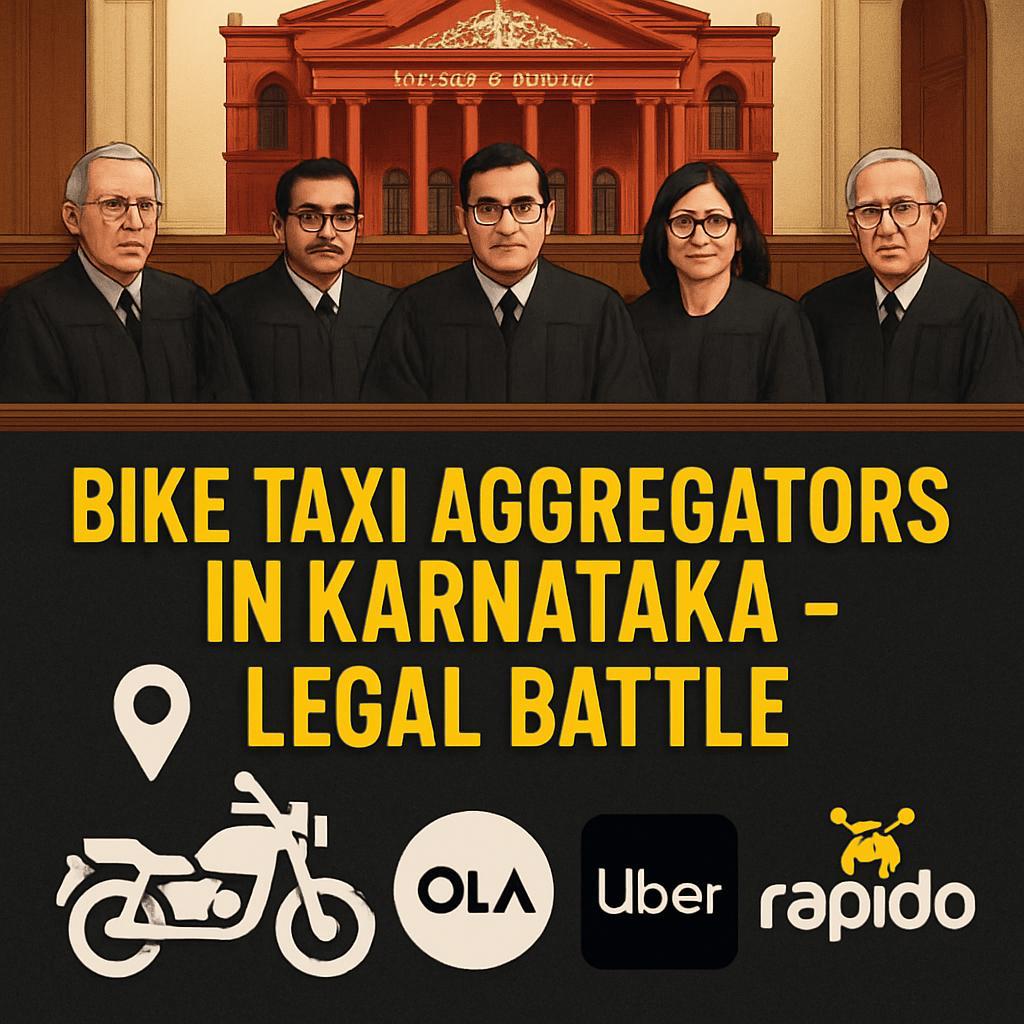INTRODUCTION:
BENGALURU – The ongoing tussle over bike taxi aggregators like Ola, Uber, and Rapido has taken another turn. The state’s High Court is now reviewing their appeal against a previous order that hit pause on their operations till official rules come through. For many Bengaluru folks stuck in traffic daily, this isn’t just a legal fight; it’s about whether they’ll still have a quick, affordable ride.
So, what’s the real deal? Behind the bike taxi ban
It began when a lone judge told these companies to stop running services because Karnataka hadn’t set clear rules yet. But these firms argue that wasn’t their call to make. Senior Advocate Arun Kumar, speaking for Ola, says the bigger issue is constitutional right. “We’re not just asking permission; we’re asserting a right.” He calls the order an overreach—no ifs or buts.
What’s at the heart of this bike taxi ban?
Basically, can Karnataka freeze bike taxis just because there’s no formal policy? Especially when there’s no central law banning them outright? Their lawyers say the Motor Vehicles Act already allows bike taxis as long as permits are sorted. No rules shouldn’t automatically mean “no work.”
The tricky policy gap relevant to the bike taxi ban
Here’s the snag: Karnataka hasn’t bothered to put out a clear bike taxi policy since 2017. The aggregators, who are lawyers, even poke at whether a policy really exists. “If there’s no official plan, why stop us?” They also argue that even if a policy was drafted, it can’t override national law. And what about those behind-closed-doors memos? Can you really quash a legal business with something no one else has seen?
The bike taxi ban is more than court talk.
This affects real people. Bengaluru’s huge and jam-packed, and bikes fill a crucial last-mile gap. These platforms argue they provide safety and accountability—driver checks, GPS tracking, complaint channels. Without them, commuters end up risking ’it with whoever pulls over.
The yellow-board mess, which leads to the bike taxi ban
The government worries about white-board (private) vehicles being used commercially. But many riders are ready to jump through hoops and get yellow-board licenses. The trouble? The state’s slow-walking those approvals. Their lawyers ask, “If folks are trying to play by the rules but get blocked, what’s the state’s real reason for shutting them down?”
What’s next?
Karnataka must decide: update rules to fit central norms or keep blocking bike taxis and risk long court fights.
Aggregators and riders keep pushing for quick fixes; they’ve got bills to pay.Author Information:
By Karthikeyan Ganesan, a law student from KKC College of Law, reporting on law and technology for Nyayasphere. Karthikeyan always likes to stay updated with current trends and important information regarding the law and cases across the country.
Author’s Information:
By Karthikeyan Ganesan, a law student from KKC College of Law, reporting on law and technology for Nyayasphere. Karthikeyan always likes to stay updated with current trends and important information regarding the law and cases across the country.


Your writing awakens the mind and softens the heart — a rare and powerful combination.